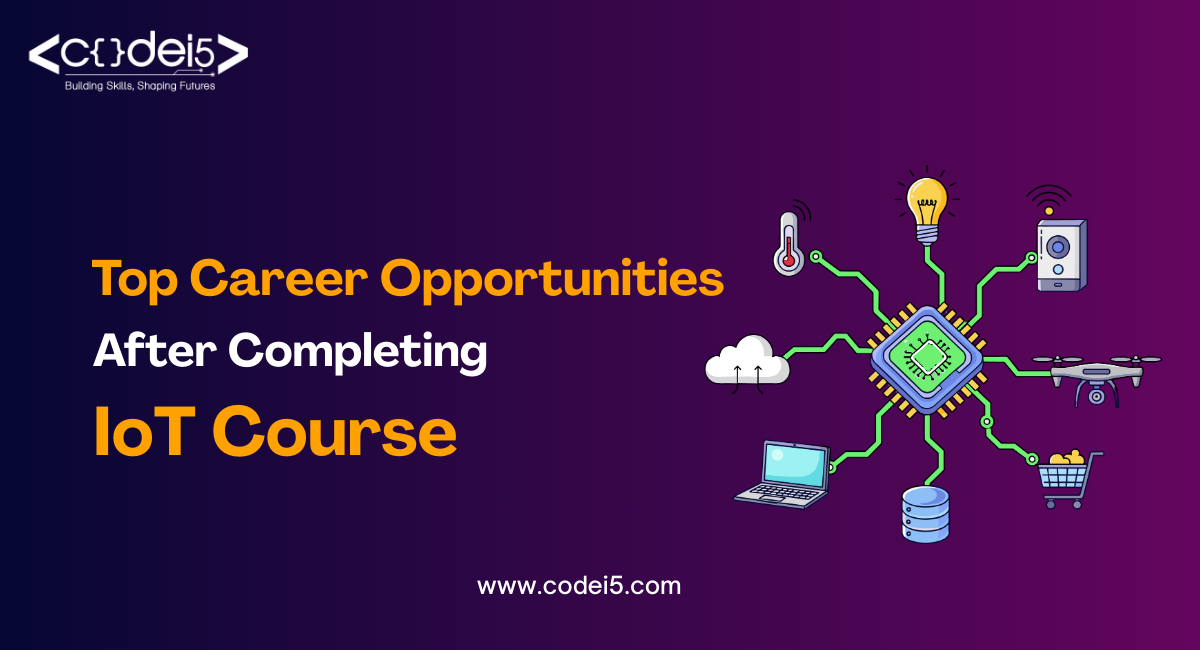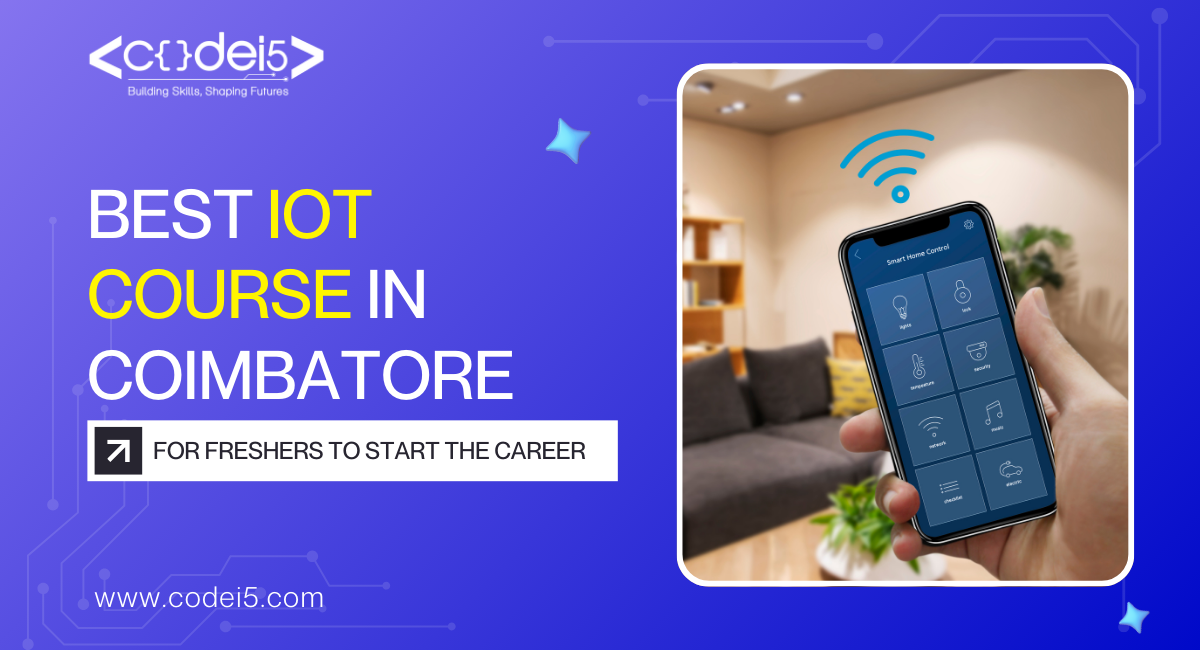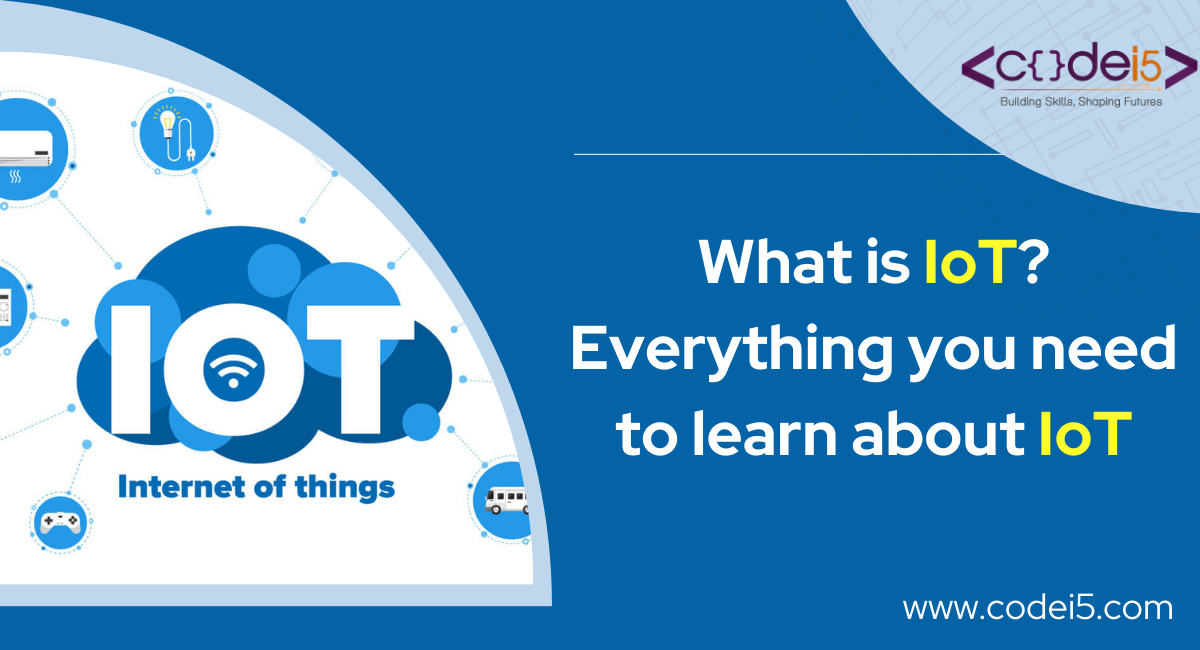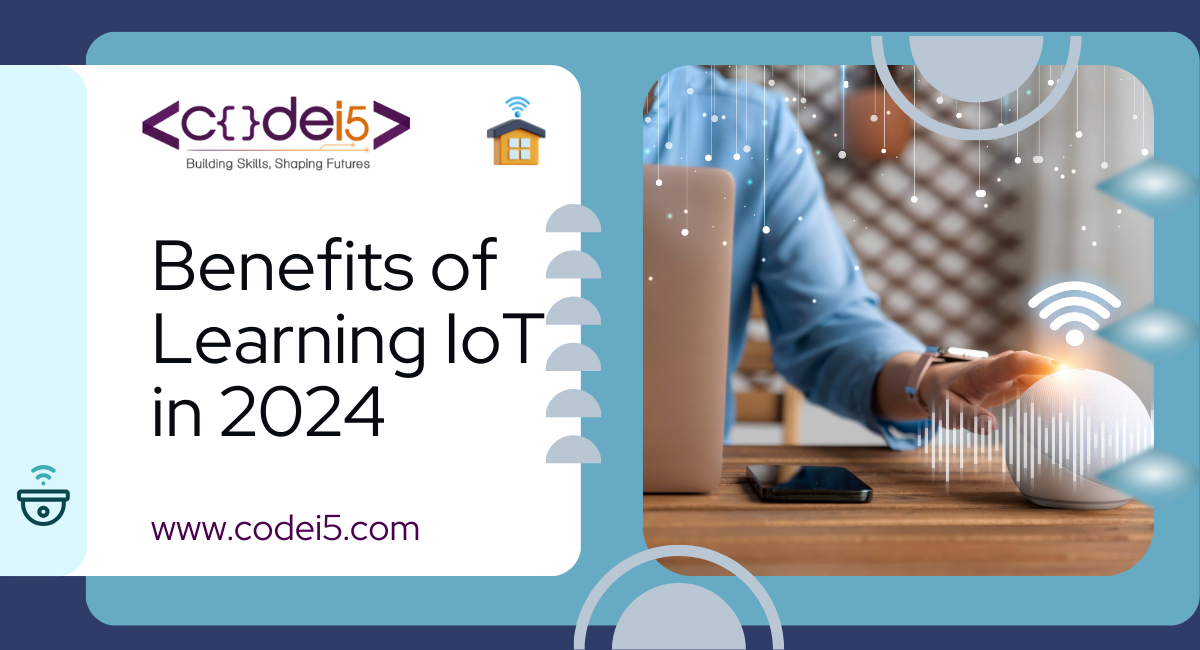
The year is 2024.
Science fiction is no longer a distant dream; it’s now part of our daily lives. Our devices are not just quiet helpers; they are active partners, always talking to each other and finding new ways to make our lives better. This is the ever-changing world of the Internet of Things (IoT), and 2024 promises to bring amazing changes.
So, get ready to explore the exciting trends and predictions that will make our “things” smarter and maybe even a little bit prophetic in the coming year.
Exponential Growth and Market Expansion
The global IoT market is growing rapidly. Experts predict an 18% increase in the number of connected devices in 2024, reaching 14.4 billion. This huge growth is due to several reasons:
1. Upgrading Network Infrastructure
Switching from 2G/3G to faster and more reliable 4G/5G networks is a big deal for IoT. These new networks allow for quicker data transmission, lower delays, and the ability to connect more devices. This makes it possible for a broader range of IoT applications.
2. Reduced Costs and Increased Accessibility
The cost of sensors, microchips, and other hardware needed for IoT devices is going down. This makes IoT technology more affordable. At the same time, easier-to-use interfaces and better cloud storage solutions make IoT more accessible for businesses and consumers.
With these changes, the IoT market is set for significant expansion in 2024, opening up new opportunities for innovation and efficiency.
IoT Trends Shaping the Future
The growth of the IoT market is accompanied by a wave of innovative trends that are redefining how we utilize connected devices. Here are some of the most significant trends to watch in 2024:
1. The Rise of Smart Cities
Cities are transforming into tech-driven hubs, leveraging IoT for intelligent traffic management, optimized waste collection, improved public safety, and efficient energy grids. Sensors embedded in infrastructure, along with real-time data analysis, will allow city authorities to make informed decisions and enhance the overall quality of life for residents.
2. IoT and Artificial Intelligence (AI)
The convergence of IoT and AI is a powerful force driving innovation. AI algorithms can analyze the vast amount of data collected by IoT devices, identify patterns, and predict future outcomes. This enables proactive maintenance, personalized experiences, and the development of intelligent systems that can adapt and respond to real-time situations.
3. Blockchain for Enhanced Security
Security remains a top concern in the IoT landscape. Blockchain technology, with its secure and tamper-proof nature, offers a promising solution for securing data exchange between connected devices. By creating a distributed ledger that tracks all transactions, blockchain can ensure data integrity and prevent unauthorized access, fostering trust in IoT ecosystems.
4. Digital Twins: Virtual Replications of Reality
Digital twins are virtual replicas of physical assets or processes. Powered by IoT sensors and real-time data, digital twins can simulate real-world scenarios, predict maintenance needs, optimize performance, and identify potential issues before they occur. This technology holds immense potential for industries like manufacturing, healthcare, and transportation.
5. Voice-Activated IoT Devices
Voice assistants are becoming increasingly integrated with IoT devices, enabling us to control our homes, workplaces, and even our cars with simple voice commands. This hands-free interaction offers a more intuitive and convenient way to interact with the interconnected world around us.
6. Edge Computing for Faster Processing
The massive amount of data generated by IoT devices necessitates new processing paradigms. Edge computing brings processing power closer to the source of data collection, reducing latency and improving overall responsiveness. This is particularly crucial for applications requiring real-time decision-making, such as autonomous vehicles and industrial automation systems.
7. The Metaverse and the Connected World
The emerging concept of the metaverse, a virtual world where users can interact and experience simulations, opens exciting possibilities for integrating IoT devices. Imagine controlling virtual avatars through physical movements tracked by sensors or manipulating virtual objects using haptic feedback gloves connected to the metaverse.
Future of IoT in Different Fields
The trends mentioned earlier will affect various areas in 2024 and beyond, shaping the future of IoT in different domains:
1. Smart Homes
IoT will turn homes into smart living spaces. Voice-controlled thermostats and appliances, connected security systems, and personalized lighting will make homes more comfortable, efficient, and secure.
2. Healthcare
Wearable health monitors, remote patient monitoring systems, and smart medication dispensers will change healthcare. Doctors can track patients remotely, get real-time health data, and take action quickly, leading to better patient care.
3. Manufacturing
Factories will become smart ecosystems with connected machines, robots, and sensors. Predictive maintenance, real-time production monitoring, and optimized logistics will increase efficiency, reduce downtime, and improve product quality.
4. Agriculture
Precision farming will become a reality with IoT sensors monitoring soil conditions, weather patterns, and crop health. This data will help farmers optimize irrigation, fertilizer use, and harvesting, resulting in higher yields and sustainability.
5. Retail
IoT will personalize shopping. Smart shelves can track inventory levels and automatically restock items. Beacons can send targeted promotions to customers’ smartphones based on their location in the store.
6. Transportation
Connected vehicles will lead to autonomous driving. Cars will communicate with each other and infrastructure to avoid accidents, optimize traffic flow, and improve overall safety and efficiency.
7. Environmental Monitoring
A network of interconnected sensors can monitor air quality, water pollution, and noise levels. Real-time data will help authorities identify environmental problems and take quick action for a healthier planet.
These are just a few examples, and the possibilities are endless. As IoT technology continues to evolve and integrate with advancements like AI and blockchain, we can expect even more transformative applications across all industries in the coming years.
Challenges and Opportunities
The exciting world of IoT also presents its own set of challenges that need to be addressed:
1. Security
Securing the vast network of interconnected devices is paramount. Vulnerabilities in IoT devices can leave them susceptible to hacking, data breaches, and manipulation. Robust security protocols and ongoing vigilance are essential.
2. Privacy
As IoT devices collect and transmit ever-increasing amounts of data, privacy concerns become amplified. Balancing the benefits of data collection with user privacy is a critical consideration.
3. Standardization
The lack of universal standards across different devices and platforms can hinder interoperability and create compatibility issues. Establishing common standards will be crucial for seamless integration and growth.
4. Data Management
The massive amount of data IoT devices generate necessitates efficient storage, processing, and analysis. Scalable data management solutions are required to handle this data deluge.
Despite these challenges, the opportunities presented by IoT are vast:
1. Enhanced Efficiency
IoT can optimize processes across various industries, leading to increased efficiency, reduced costs, and improved resource management.
2. Personalized Experiences
IoT can personalize our experiences in various domains, from smart homes and healthcare to retail and transportation.
3. Innovation and Growth
IoT fosters innovation across sectors, leading to the development of new products, services, and business models.
4. Sustainability
IoT solutions can contribute to a more sustainable future by enabling smarter energy management, environmental monitoring, and resource conservation.
These challenges and opportunities necessitate a collaborative approach from businesses, governments, and individuals to ensure the responsible and secure development of IoT.
Conclusion
The Internet of Things (IoT) is rapidly changing our world, and 2024 is set to be a big year for this amazing technology. With more devices getting connected, better networks, and lower costs, IoT is growing fast.
Exciting trends are shaping the future of IoT. Smart cities, IoT combined with AI, blockchain for security, and the metaverse are just a few examples of what’s coming. IoT will make our homes smarter, healthcare better, and industries more efficient. We’ll see big improvements in farming, shopping, and transportation.
While we must tackle challenges like security and privacy, the future of IoT looks bright. With careful development, IoT can improve our lives, help the environment, and open up new possibilities.
Interested in learning more about IoT? Check out Codei5 Academy’s IoT course. Get hands-on experience and learn from experts to maximize IoT technology. Visit Codei5 Academy today and start your journey into the future!






